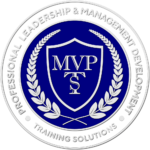As a leader, you understand the significance of strategic investments, not just in your organization but also in the broader context of the environment it operates within. It is essential to remember that while you have the power to transform your organization from within, the surrounding neighborhood—the industry landscape, market conditions, and socio-economic factors—remains beyond your direct control. Thus, it would help if you exercise caution and foresight in choosing where to allocate your resources, recognizing that the neighborhood in which your organization resides can significantly impact its success and sustainability.
When considering where to invest your time, energy, and finances, it is crucial to assess the external factors that influence your organization’s growth and stability. Just as renovating a house can enhance its value and functionality, investing in internal initiatives and improvements can strengthen your organization’s capabilities and competitiveness. However, these efforts must be complemented by a keen awareness of the neighborhood—the industry trends, regulatory environment, and competitive landscape—that can either bolster or hinder your organization’s progress.
While you may have ambitious plans for internal transformation, it is essential to remain cognizant of the external forces at play. No matter how much you invest in upgrading your organization’s infrastructure, technology, or talent, external factors such as economic downturns, shifting consumer preferences, or disruptive innovations in the industry can pose significant challenges. Thus, as a leader, you must strike a balance between internal development and external adaptation, ensuring that your organization remains resilient and responsive to changes in its neighborhood.
Moreover, your investments should not only focus on fortifying your organization’s position but also on fostering positive relationships and partnerships within the neighborhood. Collaborating with other stakeholders, such as industry peers, government agencies, and community organizations, can provide invaluable support and resources that contribute to your organization’s success. Investing in building trust, goodwill, and shared goals with your neighbors, you can create a supportive ecosystem that benefits all parties involved.
Ultimately, as a leader, your decisions regarding where to invest reflect your vision for the future and your commitment to navigating the complexities of your organization’s neighborhood. Exercising prudence, foresight, and strategic thinking, you can maximize the impact of your investments, both internally and externally, and position your organization for sustained growth and relevance in an ever-evolving landscape. Remember, while you have the power to change the house, the neighborhood it is in remains a crucial determinant of your organization’s long-term prosperity.
MVPTS STAFF
